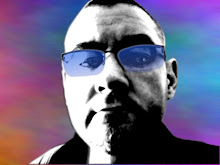It has been taught for some time that a human being has 2 or three parts. Often this misunderstanding arises from a mistaken view of what it means to be the image of God. The thought is that since God is 3 in one, so humanity must also reflect that "image". Of course, that does a HUGE injustice to what the word "tselem" (image) means, as I have pointed out here before. Being God's image means to represent him in the manner of a viceroy, or govenor.
It is in no sense that we are a copy, or reflection or virtually any of the modern english understanding of the word. In fact, the english dictionary wrongly refers to Gen 1:26 in its definition of "image". I would quote this though:
—Synonyms 1, 12. Image, icon, idol refer to material representations of persons or things. An image is a representation as in a statue or effigy, and is sometimes regarded as an object of worship: to set up an image of Apollo; an image of a saint. An icon, in the Greek or Eastern Orthodox Church, is a representation of Christ, an angel, or a saint, in painting, relief, mosaic, or the like: At least two icons are found in each church. An idol is an image, statue, or the like representing a deity and worshiped as such: a wooden idol; The heathen worship idols. It may be used figuratively: to make an idol of wealth. 2. likeness, figure, representation. 3. notion. 6. facsimile. (Random House unabridged dictionary)
Some times this misunderstanding arises because of various words (soul, spirit, flesh, heart, etc) which are used in the Bible at different times in respect to humanity. However, it is without doubt in this modern age that these terms are not used to indicate a dichotomy (or trichotomy) of human nature, but are variously used to reflect aspects of a human being for example, "creator" refers to an aspect of God, and "spirit" can refer to human understanding, consciousness, drive, or even a state of perfection after judgement day.
I would like to quote N. Tom Wright at this point:
"Ancient peoples held many different views about what made human beings the special creatures they are. Some, including many Jews, believed that to be complete, humans needed bodies as wel as inner selves. Others, including many influenced by the philoshophy of Plato (fourth century BC), believed that the important part of a human was the soul (Gk: psyche), which at death would be happily freed from its bodily prison. Confusingly for us, that same Greek word psyche is often used in the New Testament within a Jewish framework where it clearly means "life" or "true self", without implying a body/soul dualism that devalues the body. Human inwardness of experience and understanding can also be referred to as "spirit"." (Matthew for Everyone - Part 1 - pg 214.)
It is obvious to me (and perhaps not to anyone else mind you) that the Bible does NOT teach a dualism of flesh and "inner self" - it clearly refers to them as inseparable aspects of a human being. To quote Mr Wright further (in respect to resurrection):
"In most biblical thought, human bodies matter and are not merely disposible prisons for the soul. When ancient Israelites wrestled with the goodness and justice of YHWH, the creator, they ultimately came to insist that he must raise the dead (Isa 26:19; Dan 12:2-3) - a suggestion firmly resisted by classical pagan thought. The longed for return from exile was also spoken of in terms of YHWH raising dry bones to new life (Ez 37:1-14)... Resurrection was not just 'life after death', but a newly embodied life after "life after death"; those at present dead were either "asleep", or seen as "souls", "angels" or "spirits", awaiting new embodiment." (Matthew for Everyone - Part 1, pg 218)
While I dont really comprehend what is meant by "sleep", I am reminded of Paul saying "in the twinkling of an eye we will all be changed". Which suggests to me that once dead, and in eternity, the very next thing is "being changed" because of course, time has no meaning. While a thousand years may have passed on earth, etc etc.
So, there is no discombobulated spirit or soul floating around out in space waiting for Judgement day. That is a totally pagan thought and opposed to biblical understanding. The human soul, spirit, heart, mind, flesh, and all other aspects are an integral part of what makes a human. They are not divisible or immortal by themselves. A consciousness doesnt exist without its flesh, a thought does not occur without the electrical processes God Himself created to make it happen. Human beings ARE like God, we are one being, with many different aspects, none of which exist without the other.
Friday, May 25, 2007
Subscribe to:
Post Comments (Atom)


No comments:
Post a Comment